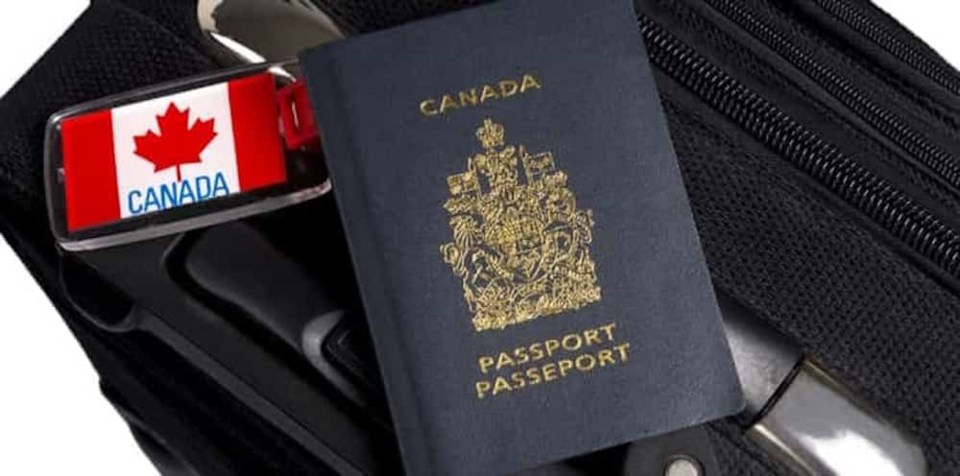For the past three years, British Columbians have been exposed to stories related to “birth tourism.”
Existing guidelines bestow Canadian citizenship to anyone born within the borders of the country, regardless of the status of their parents. This concept – birthright citizenship –allows expectant mothers who are foreign nationals to gain automatic citizenship for their children, as long as they are born in Canadian territory.
Canadians are starting to learn what residents of British Columbia already knew from news reports: unregulated “for profit” businesses are facilitating the practice of “birth tourism” in Canada. The latest statistics available, which were reported by my colleague Graeme Wood last month, show that “birth tourism” has grown, with 868 non-residents of Canada giving birth to a child in British Columbia from April 2019 to March 2020. The figure is significantly higher than the 712 cases that were registered in the previous 12-month period.
The interest from residents of the City of Richmond on this topic is entirely understandable. The year-to-year number of births to non-residents climbed from 458 to 502 in Richmond, representing 24% of all births in the city. This is way above the norm for other Canadian municipalities.
We have heard talk about legal action before. In early 2019, the possibility of the federal government dealing with the practice of “birth tourism” appeared to be near. A petition initiated by Richmond resident Kerry Starchuk was ultimately introduced in the House of Commons by Joe Peschisolido, who was then the Member of Parliament for one of Richmond’s constituencies. The document urged the federal government to commit resources to determine the full extent of “birth tourism,” as well as to implement measures to reduce and eliminate it.
The chances of the federal government officially investigating “birth tourism” were greatly hindered after Peschisolido, the Liberal Party incumbent, was defeated in the 2019 federal election by Conservative Party candidate Kenny Chiu.
Chiu and the other MP who currently represents the people of Richmond in Ottawa –Conservative Alice Wong – have suggested bringing the type of travel document that a person has before giving birth into the equation. This could, for instance, permit an international student who is not a permanent resident of Canada to give birth and bestow citizenship to the child, but the same rules would not apply to someone who arrived on a tourist visa. In any case, it will be extremely difficult for two opposition lawmakers to get traction on this file.
In 2019, Research Co. and Glacier Media looked at the views of British Columbians on this issue. This year, we took the same questions about “birth tourism” to Canadians and the results outline a real inclination towards action. Across the country, 78% of Canadians concur with the main aspiration of the petition initiated by Starchuk and want the federal government to establish a committee to investigate the full extent of “birth tourism” in Canada. In British Columbia, support for this course of action rises to 82%.
Seven in 10 Canadians (71%) believe that “birth tourism” can be unfairly used to gain access to Canada’s education, health care and social programs. Majorities of the country’s residents also think “birth tourism” can degrade the value of Canadian citizenship (59%, and 67% in British Columbia) and displace Canadians from hospitals (56%, and 64% in British Columbia).
While Canadians are slowly becoming aware of the problem, the biggest hurdle for any type of legislation that attempts to address “birth tourism” is how Canada currently defines citizenship. We found that two-thirds of Canadians (67%) agree that birthright citizenship may have made sense at one point, but now people have taken advantage of existing rules.
In a country that is dealing with a pandemic and growing concerns about economic recovery, more than half of Canadians (54%) believe Canada should “definitely” or “probably” consider establishing new guidelines for birthright citizenship, while one-third (34%) would “definitely” or “probably” keep the rules that are already in place.
Support for a new approach to citizenship increases with age. While only 43% of Canadians aged 18 to 34 are in favour of amending the birthright citizenship rules, the proportion climbs to 51% among those aged 35 to 54 and to 66% among those aged 55 and over. Majorities of Canadians who voted for the Liberals (54%), the New Democratic Party (NDP) (60%) and the Conservatives (61%) in the last federal election also believe it is time to revise these guidelines.
The next batch of data related to “birth tourism” in Canada will conceivably be available for scrutiny in August 2021. The figures will show the effect of the COVID-19 pandemic on the practice. Before the lockdown and travel restrictions, “birth tourism” continued. At this stage, Canadians, and particularly British Columbians, are distraught. A convenient interpretation of the rules is turning the suitable and welcoming recourse of birthright citizenship into a system that can be exploited for financial gain.
Results are based on an online study conducted from August 28 to August 30, 2020, among 1,000 adults in Canada. The data has been statistically weighted according to Canadian census figures for age, gender and region in Canada. The margin of error, which measures sample variability, is plus or minus 3.1 percentage points, 19 times out of 20.
Interested in learning more about birth tourism in B.C.? Here are a few stories:
- Birth tourism stats don’t add up in B.C. or Canada
- China-Canada tensions not impacting B.C. birth tourism
- Petition targets 'abusive and exploitative' birth tourism in Richmond
- Richmond council asks feds to ban birth tourism




